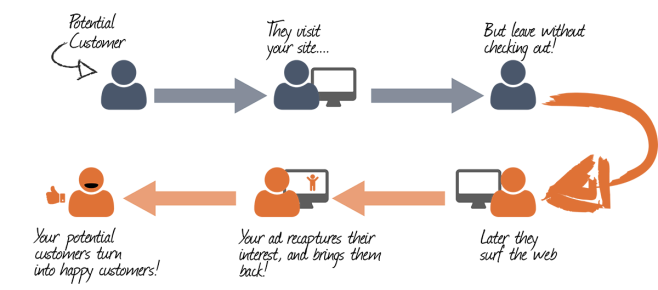The notion of a digital footprint is relatively new. It is essentially formed through the data trail an individual or device leaves when navigating the web. It follows how the internet is navigated and utilised; this data is then formulated into categories, and then further segmented again. This type of data collection essentially allows companies to tailor their marketing via your internet usage, which in turn entails a variety of ethical questions regarding personal privacy verses profit.
Lets break it down;
We on average are exposed to hundreds of adverts a day, with many scholars noting that this ‘over exposure’ leaves us with two forms of memory; reflexive and selective. Adverts that fail to capture our attention are stored in reflexive memory, where we are unlikely to retain the brands message. Selective attention however can be triggered through marketing that is relevant to our current wants and needs, with the brands message more likely to be retained and then recalled when needed. This is where targeted marketing becomes essential, and your digital footprint becomes valuable to businesses.
For example;
If you are currently in the market for a new car, and have been searching online for different deals, the next time you log into Facebook, you might notice more adverts for car dealerships near you. This form of marketing is often referred to as ‘retargeted marketing‘ and is where many of our ethical questions arise.

Lets get technical;
The ‘retargeting’ program works by a small code, which drops an anonymous browser cookie, unnoticeable to consumers. This cookie then allows the program to target adds on social media only to those who have visited your businesses webpage.
This form of marketing is regarded as being highly effective as it drives content for those who are already within your target market, and have already demonstrated a level of interest in your product by visiting your site. It is therefore claimed by the site Re-TARGETER that “most marketers who use it see a higher ROI than from most other digital channels..” however the statistical data for this claim is minimal.
Profit?
A few different sections benefit financially from this sort of advertising.
Firstly the retargeting program itself, these programs are for sale online and easily downloaded onto a website for a fee.
Secondly the business itself; more effective targeted marking means less wasted money on ineffective non-targeted marketing, they also benefit if the marketing is successful and goods or services are purchased.
Thirdly Facebook; their profit margins are greatly determined by the level of advertising shown on their platform. This type of marketing is at an all time high due to the “effectiveness” of retargeted marketing.
But is it a violation of privacy?
The short answer is yes, the long answer is no. Due to the cookies being ‘hidden’ and the consumer not giving explicit authorisation for the tracking to take place, yes it is a violation of privacy. However it is argued that in a modern digital age it would be naive to believe that your digital footprint isn’t being tracked, and therefore it is assumed that consumers have ‘reasonable knowledge’ that their online habits are being monitored. Therefore it leaves many to conclude that it is not an invasion of privacy, as consumers have reasonable knowledge of the tracking.
So where does that leave consumers?
Consumers can either see the positives or negatives of this form of marketing. The main positive effect of this marketing is less ‘clutter’ and using more selective attention rather than reflexive. The negatives surround the concept of privacy and the notion of others making profit off your digital footprint. In reality it is out of the control of the consumers, and even the implication of government legislation would be impossible to regulate with many of these sites being owned/ operated overseas.
The way we use the internet is constantly shifting, with the rise of new media platforms and the fall of others. Overall all consumers and businesses can really do is keep up with media trends, and adapt their marketing to suit consumers current wants and needs in this multifaceted digital environment.
